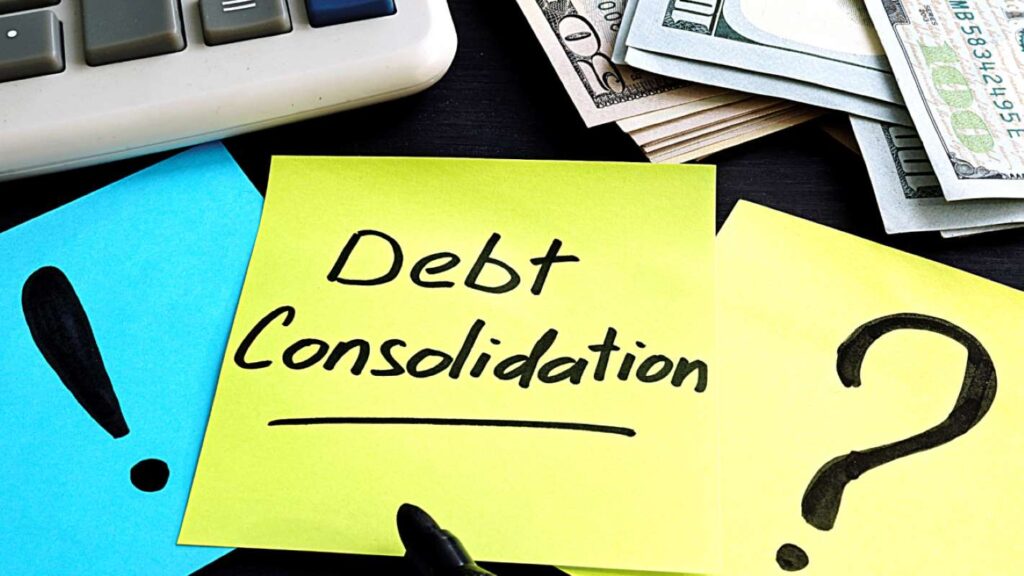Many potential home buyers probably ponder, “How does debt consolidation affect buying a home?” The responses are pretty tricky as they can be context-specific. The impact of debt consolidation is largely dependent on the debt type.
Usually, when a debt consolidation process increases your credit score, it boosts your odds of getting a good mortgage deal. Meanwhile, some debt consolidation activities cause the credit score of concerned parties to tank. So, before proceeding to apply for a debt consolidation loan, it may be wise to consider how it would affect your overall credit score.
Understanding Debt Consolidation
How does debt consolidation work? When an individual consolidates their debt, it could mean one of two things:
- They are taking out a low-interest loan to pay off a combination of long-standing debts. Usually, all the standing debts are lumped into a single monthly repayment plan.
- It could also mean the individual is working with a credit counselor or debt relief company to improve their credit situation.

As we mentioned earlier, there are different types of debt consolidation, and each affects your credit score and mortgage loan eligibility differently. So, there’s no mold-cast response to the question, “Does debt consolidation hurt your credit?” Instead, below are some debt consolidation methods and how they affect your credit score and future loanworthiness.
1. Debt Relief
As the name implies, debt relief helps you pay off all your debts at an amount lesser than its present value. Anyone who knows how credit management works would know that such interventions will harm your credit score and mortgage eligibility.
2. Credit Counseling
Some counseling services are nonprofit and help individuals consolidate their debts through a debt management plan. Often, the credit counselor would help the affected individual chart a repayment plan at a lower interest rate, which, if adhered to strictly, should improve their credit score.
When the debt has been paid off, the debtor’s credit score should be in good standing. Applying for a mortgage loan while servicing a debt management plan is possible. However, the mortgage lender may charge a much higher interest rate.
3. Personal Loan
Another simple route to loan consolidation is taking out a personal loan at a much lower interest rate. Indeed, a 2019 survey by the popular credit Bureau Experian revealed that about 26% of all personal loans taken out in that fiscal year went to debt consolidation.
While applying for the said personal loan, the statutory hard inquiry may temporarily reduce your credit score. Also, defaulting on a personal loan meant for debt consolidation may spell irreparable damage to the borrower’s eligibility for a home loan.
401(k) Loan
It is possible to consolidate all your standing debt, take out a loan from your 401(k) retirement plan, and knock off your debt burden. This approach can potentially increase your credit score and make you more viable for a home loan.
However, taking out a portion of your 401(k) retirement fund may result in losses on investment gains.
Balance Transfer
Credit card issuers sometimes offer balance transfer options to recoup some of their customers’ bad debts. This simply involves consolidating all a customer’s debts into a single credit card account, to be paid off at a very low interest rate or no interest at all.
The caveat with balance transfers is that the low-interest consolidated debt has to be settled within a fixed period, usually 12 months. Settling the debt in record time and with an existing credit card account should leave your credit score unaffected. However, defaulting on the debt or creating a new credit card account for the debt consolidation may cause a decline in credit score.
How Does Debt Consolidation Affect Mortgage Loans?
A major metric mortgage lenders look out for when vetting an application is the debt-to-income (DTI) ratio. This ratio can be determined by comparing how much of your monthly income goes to monthly debt financing.

A borrower with a DTI of 0.25 means 25% of the person’s income goes to debt servicing. When you consolidate your debt, monthly payments may come at a lower interest, but the amount naturally shoots up. This increase in payment implies that the DTI has increased commensurately. However, if the debt consolidation method spreads out the repayment over a long period, it may reduce the DTI and free up your income.
ALSO READ: Gen Z Adults Are Struggling To Buy Homes of Their Own, and They Think Millennials Are To Blame
How To Prepare For A Home Purchase After Debt Consolidation?
At this point, you may wonder, “What can be included in debt consolidation to help me secure a home loan? From the preceding, we can see that debt consolidation could improve your credit history, depending on how you go about it. Likewise, it could even set you up for enough financial freedom to consider buying a home.
However, after consolidating your debts, we have a few more things to recommend that should strengthen your personal finances for a home purchase.

- As we advance, work with a budget when making spending decisions
- Actively review your financial habits and endeavor to make them better
- Strive to make your debt-to-income ratio as low as possible
- Always look out for opportunities to hack your credit score
- Cut your spending and save more
A debt consolidation loan could be a great tool to loosen the noose of debt on your neck and boost your credit score. However, if such debt consolidation activities do not improve your credit standing, they can do little or nothing to help you secure a mortgage loan.

